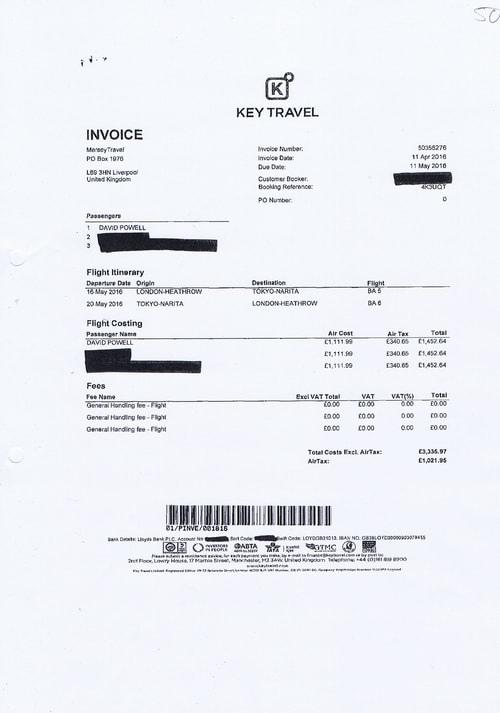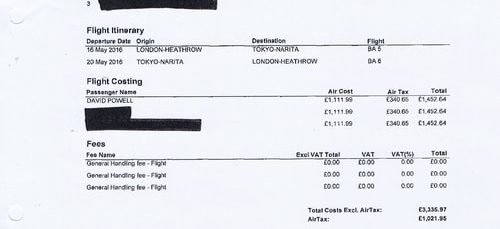Consultation feedback and questions to Improvement Board (15th November 2013)
Handed out at last Friday’s Improvement Board meeting were the responses to the consultation received so far, motions passed at the Audit and Risk Management Committee and Coordinating Committee and the questions submitted in advance of the meeting by the members of the public as circulated at the meeting (although some of mine were subtly altered).
I’ve checked the Improvement Board section on Wirral Council’s website at the time of writing, but they haven’t appeared there yet, so here they are instead!
FEEDBACK FROM PARTNERS
Comments on the draft report on behalf of Wirral Community NHS Trust
Thank you for the opportunity to comment on this report.
Wirral Community NHS Trust recognises the significant steps forward taken by the Council over the last two years and agrees with the broad conclusions set out. We also recognise the commitment shown by key personnel, officers and members, and the level of improvement activity which has taken place and which is reflected in the report.
Particular phrases from the concluding pages which resonate with this organisation’s experience working with the Authority over the last year include the reference to a stable, well-led and inclusive organisation, where a change in culture has taken place. We agree that there is a stronger sense of strategic direction, planning and performance management. The grip of the financial position is evident, and there is much greater clarity about the individual roles of senior staff in the new structure, and a strong sense of accessibility.
The Authority is engaging well with key partners and taking a proper leadership role, particularly from our respect, in the health and social care economy.
We look forward to continuing to work with the Council and building this relationship. A key challenge for all public sector partners over the coming years will be our ability to work together to manage the impact of the financial constraints under which we all work, and to ensure that actions taken by individual partners to not impact adversely on the challenges faced by other agencies.
Simon Gilby
Chief Executive
Wirral Community NHS Trust
Thank you for a copy of the Wirral Improvement Board Review report.
I think sharing this document with your peers across the Liverpool City Region is an example of the increased transparency and accountability that you, Cllr Davies your Leader, together with Officers and Members are trying to bring to Wirral.
It is clear that Wirral faced a number of significant challenges and it is to your credit that these have been identified, accepted and acted upon in a way that can only be to the benefit of residents in the Wirral.
The priorities identified by the Improvement Board have set out a clear improvement framework for the Council and the actions taken to date are noted. For me, the priority around political and managerial leadership is key – it sets the example for the Council and all it’s staff and members. This leadership is reflected throughout the other priorities and our challenge now is to build on the cultural changes that are beginning to happen at Wirral so that they become the norm for the future.
It is also to its credit that this improvement has been undertaken in a time of significant financial pressure on the Council, as with the other Councils in the Liverpool City Region. Again the development of a longer term budget and financial plan is noted and will clearly help the Council address current and future challenges in respect of financial settlements.
It would appear that the Council has made significant progress in a relatively short period of time and again it is noted that the Improvement Plan recognises it is not the end but clearly there are further steps that need to be taken to build on what has been achieved to date.
On behalf of St. Helens Council, I would like to congratulate the Leader, yourself and the teamwork of the whole Council on getting to where you are now.
Yours sincerely
Carole Hudson
Chief Executive
St. Helen’s Council
Wirral Improvement Board Review
Merseytravel would like to concur with the view expressed in the report which has recently been published that significant progress has been made by Wirral Council in addressing a number of critical issues that had been raised.
Relationships between Merseytravel and Wirral Council are very open and transparent based on trust. We have a joint agreement on the current transport priorities that will best serve the Wirral, in particular looking at enhancing the connectivity between Wirral and North Wales and Cheshire West. This has been done in the spirit of collaboration at a strategic and operational planning level.
We have developed, and will continue to develop an open and trusting relationship with both the political and senior officer leadership at Wirral Council and have worked collaboratively on the development of a Combined Authority scheme which we hope, when fully implemented in 2014 will see a greater level of outward looking, strategic leadership at City Region level with a very progressive set of revised transport arrangements which will have been developed with collaboration by all parties through which Wirral have contributed significantly.
We also recognise the role of the Leader of Wirral has played in the development of securing European funding within the European programme and we hope to continue to maximise this expertise and the new approach to partnership working between all parties but in particular between Merseytravel and Wirral Council.
I trust that this helps.
Yours sincerely,
David Brown
Chief Executive and Director General
Wirral CCG welcomes this report which clearly demonstrates the significant progress the council has made over the last 18 months. We believe the the correct structures, governance and culture is now in place for us to work collaboratively in the future to deliver integrated services for the population of Wirral.
Dr Phil Jennings
Chair
Wirral CCG
“Congrats! Need to keep up the good work!”
Angela Eagle MP
RELEVANT RESOLUTIONS PASSED AT AUDIT AND RISK MANAGEMENT COMMITTEE 14/11/13 WITH THE SUPPORT OF MEMBERS FROM ALL PARTIES
[Ed – Cllr Simon Mountney voted against which isn’t mentioned here]
Moved by Councillors Pat Glasman/Janette Williamson
RESOLVED:
That this Committee welcomes the report of the Improvement Board, which draws attention to the significant progress Wirral has made in the last 20 months.
It recognises that there are still issues which need to be addressed but believes it is clear that Wirral is now an outward looking Authority – open to constructive criticism and willing to address problems when they occur.
We would recommend the sector-led approach to change and development to other authorities who find themselves in difficulty.
We would like to thank the Improvement Board, all staff and Members who have participated in the change process. It now remains for Members to continue to participate in their own development and not become complacent but ensure that change becomes embedded for the future
Moved by Councillors Steve Foulkes/Pat Glasman
RESOLVED:
That the Committee welcomes the response to critical reports in that it puts the Council’s progress in an accessible and available format.
The issues remain complex and what happened was regrettable. We urge that all outstanding matters should be resolved as quickly as possible and that Members be updated periodically.
RELEVANT RESOLUTIONS PASSED AT CO-ORDINATING COMMITTEE ON 13/11/2013
RESOLVED:
That this Committee welcomes the Report. It clearly states the Authority is moving in the right direction.
This Committee pledges to play its full part in continuing the direction of travel.
All Members will be encouraged to engage in the next steps identified within the report.
We must not be complacent as we still need to improve in many areas identified in the report and embed positive changes.
We thank all members of the Improvement Board for their help.
We thank all employees and Members for their efforts in this journey of improvement.
We would recommend the approach adopted by the Local Government Association, in piloting sector led improvement, and would recommend it to others who find themselves in difficulties.
QUESTIONS OR FEEDBACK SUBMITTED BY THE PUBLIC
J YATES
Dear Sir/Madam
I raise an objection to the timing of the Public meeting arranged for Friday 15th 2013 as notified in the Wirral Globe.
I have not received the statutory notice of at least 5 working days and feel I would not be able to attend at such short notice.
I therefore submit that this meeting be re-arranged to incorporate the legally-required term of notice.
JOHN BRACE
The final report of Anna Klonowski Associates Limited was published as part of the Cabinet agenda of the 12th January 2012. Wirral Council also received from Anna Klonowski Associates sixteen appendices (listed below), which apart from appendix G (Standards for England Decision notices) have not been published. If Wirral Council is now “open and transparent” when will the other fourteen appendices be published (except for appendix L)?
A Appendices as Referred to in the Report
B Equality & Human Rights Commission Letter Dated 29 December 2010
C First Improvement Plan
D Care Quality Commission Inspection Report
E Charging Policy for Supported Living Services
F Documents Relating to 27 Balls Road
G Standards for England Decision Notices
H Documents Relating to Reimbursement Claims
I Emails Relating to Supported Living Contracts
J Documents Relating to Service Provider 2
K Documents Relating to Service Provider 3
L Medical Information Relating to Martin Morton (MEDICAL IN CONFIDENCE)
M Documents Relating to Service Provider 4
N Minutes of Adult Protection Strategy Meetings Relating to Service Provider 4
O Documents Relating to the Safeguarding Adults Unit
P Minutes of the DASS Monitoring & Development Sub Group Meeting Held on 11 December 2008
Q Employment Dates for WMBC Employees
On the 14th April 2011 Cabinet resolved that Martin Smith’s report be made public, however all the names (presumably of Wirral Council officers and councillors) contained within the reported were redacted before publication. Is publishing the redacted (rather than full) report complying with the spirit of the earlier Cabinet decision? Will Wirral Council to publish an unredacted version of the Martin Smith report?
Presumably some of the blacked out names in Martin Smith’s report would be the names of councillors. As councillors are accountable to the people of Wirral, how can the people of Wirral hold their elected representatives to account unless the full Martin Smith report is published including the names of councillors in it?
Does the Improvement Board understand that the Wirral public will find it hard to believe that Wirral Council has changed when there are so many unanswered questions surrounding these events due to the lack of transparency and accountability?
The Standards Committee of Monday 4th July 2011 discussed an administrative error that had occurred in dealing with the standards complaint made by Martin Morton made regarding Cllrs Roberts, McLaughlin, Pat Williams and Bridson. He had initially made a complaint about Cllrs Roberts, McLaughlin and Pat Williams, but had replaced this with a more detailed complaint involving Cllrs Roberts, McLaughlin, Pat Williams and Bridson. This second complaint mysteriously vanished from Wirral Council’s files. A public apology was made at the time by the Monitoring Officer to Martin Morton and the councillors who were the subject of the complaint. Did any Wirral councillors have access to the revised complaint prior to its disappearance from Wirral Council’s files if so who were they?
A separate and unrelated complaint about one of the four councillors referred to in question five (ref SfE 2010/02) was decided on the 20th December 2010. However the covering report sent to the panel which decided was incorrectly titled “Report of the Monitoring Officer – Case Reference 2010/03″ . This report to the panel also omitted that the original complaint referred to an alleged breach of 6(a) of the Code of Conduct. As an apology was given for an administrative error to the complainant referred to in question 5, will an apology for this administrative error be given to the complainants of complaint reference SfE 2010/02 and the subject of the complaint?
In the review report it states “it is proposed to strengthen the independent nature of the Audit and Risk Management Committee through the appointment of a majority of external members”. How many independent members of the Audit and Risk Management Committee will be appointed, who will they be appointed by and will the Audit and Risk Management Committee be chaired in future by one of these independent members?
Although Wirral Council is meeting its target of responding to 85% of Freedom of Information Act requests within twenty days during the Information Commissioner Office’s monitoring period, a greater proportion of Freedom of Information Act requests have been turned down. If memory serves me correctly, this has been achieved by dedicating greater human resources to responding to Freedom of Information Act requests. This raises the questions, are these resources temporary and only for the Information Commissioner Office’s monitoring period (and if so how will the current performance be maintained once these resources are withdrawn) and how does refusing a greater proportion of Freedom of Information Act requests tally with the administration’s stated desire to be more “open and transparent”?
The reports into whistleblowing allegations raised about Wirral Council’s BIG (business investment grants) and ISUS (Intensive Startup Support) have both not been published in full despite being received by Wirral Council in the Spring of this year. The Executive Summary to the Grant Thornton report into the BIG scheme was published by Wirral Council on the 15th July (the companies referred to in the Executive Summary were anonymised). If the Executive Summary to the ISUS report follows the same format as the BIG report and has also been anonymised, why has this not been published also?
If the Improvement Board decides that it is safe to withdraw, do they think that the Corporate Governance Committee should be reconstituted to ensure sufficient oversight by councillors of the work identified in the “Next Steps” section?
Are the LGA members of the Improvement Board financially renumerated for their work on the Improvement Board and if so, could amounts (whether exact or approximate) of the total cost to Wirral Council over the lifespan of the Improvement Board?
GREG VOGIATZIS
Dear Improvement Board,
As a member of the public living on Wirral I have reviewed your report in the limited time it has been available and would like to comment and seek response as follows.
Your recommendations include
(a) The need for an Improvement Board in its current form is no longer the best way forward for Wirral.
(b) Instead the Council will need to drive improvement through the future actions suggested in the Next Steps sections of the report.
(c) There should be a review of Wirral’s progress overall at the end of the year end as suggested in para 85, on page 30 of this report
I struggle to grasp why these recommendations are appropriate given the significant number of “next steps” that the report suggests are required.
The review proposed at c) is to take place within a relatively short timescale at which point, given the scope of the report, it would be unlikely to establish genuine progress or provide confidence that strategies and changes have been effectively implemented.
I believe that continued external oversight by the Improvement Board is necessary to ensure that “next steps” and changes are in fact implemented and embedded.
There are a number of areas of concern that lead me to this belief.
At para 71 of the report reference is made to community representatives having been recruited for Constituency Committees which are a key plank of neighbourhood working.
This is untrue – Birkenhead, the largest constituency is yet to recruit community representatives and from my own enquiries do not appear to have a process to do so.
I am advised that the meeting of Birkenhead Constituency Committee arranged for 28 Nov 2013 is intended to address this although no agenda has yet been produced.
This does not inspire confidence that your report is accurate in this area and leaves other areas open to doubt.
At para 99. reference is made that the direction of travel is towards amber. This implies the situation is still RED and undermines your position that external oversight/scrutiny is no longer necessary.
At para 107 reference is made to FOI requests and the 85% target being achieved. This is measured over a very narrow timescale and makes no reference to any challenges to response that may have been received.
Give Wirral’s poor performance in this area surely continued oversight is required to ensure this is consistent and representative of anticipated future performance.
I have concerns that the Neighbourhood working structures are flawed and as these are key to delivery of the “new” ways of working and this calls into doubt the validity and credibility of much of the work the Improvement Board have undertaken.
The (published) Equality Impact Assessment for this does not appear to consider any potential negative impacts for protected groups or consideration of socio economic factors when in fact these clearly exist on the basis of £200,000 being equally split between constituencies regardless of their demographic or socio economic need. There is potential that inequality will be increased in constituencies/areas with more ethnically diverse population or younger/older populations.
Even on a simple budget per head calculation unequal treatment could be perceived as existing.
If my concerns are correct then this is something I would expect the Improvement Board to have noticed and addressed given the weight and emphasis placed on Neighbourhood Working.
NIGEL HOBRO
In your report p53 section 184 you write that you are “the first sector-led improvement approach taken to support a Council facing significant governance issues”. In the potted biographies of Joyce Redfearn it is written:
“She has served on two previous improvement boards for Blaenau Gwent and for Liverpool.”
Question 1.
What happened at Blaenau Gwent and Liverpool. I interpret “sector-led” as being led by a peer group rather like the Police investigating themselves. What was different about Mrs Redfearn’s prior appointments to Boards.
Question 2.
Your report refers to external reports 2010-2012 though by contrast WBC writes a response to critical reports 2010-2013. Given that those reports included two from Grant Thornton in 2013 which showed alarming deficiencies in the award of business start-up grants both in working Neighbourhoods, in BIG and in ISUS, how can you make a statement that the Economy was an “area of excellence” for WBC even under the difficult conditions to which you allude?
This is not a complaint regarding those investigations but a query of on what authority can you print such an assertion faced with knowledge of, certainly published in BIG Abbreviated summary, the deep failures of scrutiny over the process shown by WBC?
JON KING
I have two questions to the Improvement Board:
I would contest that the ‘war’ has been won when so many legacy issues remain outstanding, but to ‘win the peace’ when there has been such a breakdown in trust between the local authority and its residents is it not time for the Local Authority to adopt a corporate charter reflecting the Nolan Principles to embrace the expected standards in public life?
To ‘win the peace’ you have to resolve the grievances and issues resulting from the previous periods of poor performance how can the Council assure the residents that these have been investigated and addressed with the appropriate vigour.
ANONYMOUS (DID NOT WANT TO BE NAMED)
The report states that some council members were less engaged with the improvement training and process than others. Is the public allowed to know which ones these were and can anything be done about the persistence of this negative attitude now that the Improvement Board is planning to reduce its level of involvement?
The ‘What Really Matters’ and other previous questionnaires were hailed as a success and yet there were frequent public complaints regarding the loaded nature of the questions and the lack of information regarding the choices they presented (evidenced by letters to the local press, for example). Were these questionnaires actually designed by a reputable and experienced market research company, and if so, which one?
MARTIN MORTON
The Improvement Board will hear from Martin Morton who has requested time to address the meeting.
If you click on any of these buttons below, you’ll be doing me a favour by sharing this article with other people. Thanks:
53.402022-3.070415






